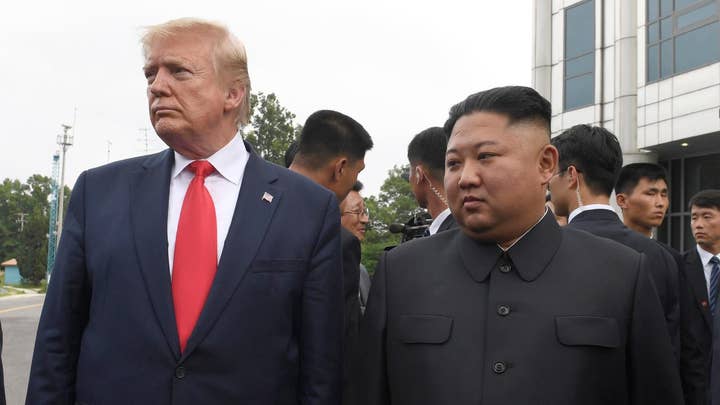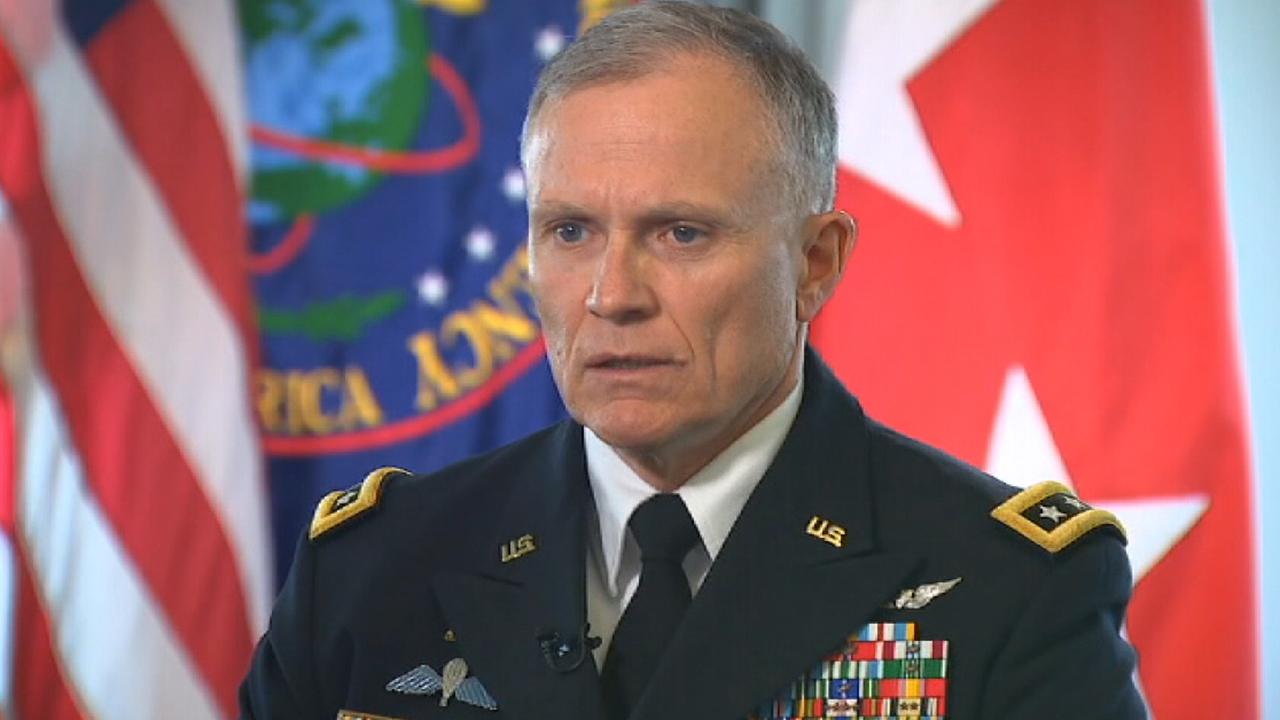
Amid Trump diplomacy, US intel official recently questioned North Korea's intent, emphasized 'ground truth'
Published July 01, 2019
President Trump has called his historic handshake summit with North Korea’s Kim Jong Un "a great day for the world," but days before the meeting Sunday, a senior U.S. intelligence official assessed that Kim was not prepared to give up his stockpile of nuclear weapons, and that North Korea's military has continued to "train hard."
"We still continue to assess within the I.C. that Kim Jong Un is not ready to denuclearize," Defense Intelligence Agency Director Robert Ashley Jr. said of the U.S. intelligence community, in an exclusive interview with Fox News just days before Trump became the first sitting U.S. president to step foot into North Korea.
Ashley said his agency’s mission goes beyond understanding foreign militaries and the operational environment, also providing "ground truth" to policymakers in the U.S. government.
DEFENSE INTELLIGENCE AGENCY DIRECTOR: IRAN LIKELY AT 'INFLECTION POINT'
"For the policymakers and for the senior decision makers, our job is to make sure that we're able to tell them what is happening, because they may go into a negotiation and hear something, but we are able to get them as much ground truth as possible which gives them leverage and advantage," Ashley said.
While Director Ashley’s comments came before the weekend meeting, the interview provides insight into the intelligence community’s most recent thinking.
As for North Korea, the director said, "We're still doing everything we can to make sure that we can characterize the capability that the North Koreans have, that they continue to train hard and build out their forces."
"It was great being with Chairman Kim Jong Un of North Korea this weekend. We had a great meeting, he looked really well and very healthy - I look forward to seeing him again soon," Trump tweeted Monday evening. "In the meantime, our teams will be meeting to work on some solutions to very long term and persistent problems. No rush, but I am sure we will ultimately get there!"
TRUMP MEETS KIM IN DMZ, BECOMES FIRST SITTING US PRESIDENT TO STEP INTO HERMIT KINGDOM
Ashley, in the interview, also referred to China as a long-term competitor to the United States. "We see investments in fourth and fifth generation fighters," he said. "We see them for the first time actually designing their own aircraft carrier. We see them doing a lot of work in artificial intelligence, machine learning, computer vision, quantum -- modernizing the ground forces."
Ashley expressed concern when asked about recent comments that China's goal over the next decade has been to double the size of its nuclear stockpile.
"They’re building the nuclear forces," he said. "They have medium-range ballistic missiles, intermediate range ballistic missiles, and a number of fixed and mobile intercontinental ballistic missiles that are nuclear capable, that can reach the U.S."
Asked if he believed China has seen nuclear weapons as a way to end conventional conflicts, Ashley said it's more nuanced.
"They do not have a first-use policy, and in some ways it’s a little bit of amorphous in terms of how it’s described -- there is not a first-use policy that the Chinese have," he said. "But, with any nation, if it looks like the regime is at risk or a threat, then there’s the potential scenario where we see them use nuclear weapons."
Coming days after Iran shot down a U.S. surveillance drone, Ashley said at the time he believed the rogue nation likely was at "an inflection point," and that the recent attacks on tankers and the downing of the drone appeared to be part of an effort to change "the status quo."
Ashley said he believed the United States' withdrawal from the Iran deal and subsequent sanctions made a major impact on the regime. Later this year, the Defense Intelligence Agency is expected to release an unclassified military study on Iran, following similar reports on China and Russia.
On Monday, Iran said it had surpassed the limit on its enrichment uranium stockpile set up in the 2015 nuclear agreement which President Trump has abandoned.
Asked about the Iran threat 10 days ago, Ashley said: "As you look at the developments of [the Joint Comprehensive Plan of Action], the lack of an economic outcome for them, and then, really, the sanctions which have put a lot of pressure on the Iranian government... I think this uptick that you’ve seen is a reflection of them trying to kind of change the status quo in the path that they’re on."
CLICK HERE TO GET THE FOX NEWS APP
He said he believes the administration’s pressure campaign "is working and there is hardship."
He continued, "And, you know, the president has asked the question before, 'Does this have an impact on the Iranian people?' And, it has an impact on the entire nation when you look at their economy because the economy’s moving into a recession and they are struggling."
https://www.foxnews.com/politics/north-korea-trump-diplomacy-intent-questioned-intelligence


